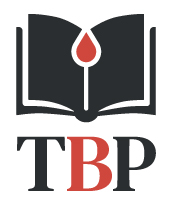Treatment

1. Treatment of bleeding

What are the 2 preferred treatment options for bleeding in patients with acquired hemophilia A?
Click for AnswerRecombinant factor VII (rFVIIa) and activated prothrombin complex (aPCC, also known as FEIBA) are called bypassing agents. If the first bypassing agent fails, consider switching treatment to the other bypassing agent.
Other treatment options include:
- Porcine factor VIII (FVIII)
- FVIII concentrate
- Plasmapheresis and immunoadsorption
- Tranexamic acid:
- Particularly for mucosal bleeding
- Contraindicated in setting of urinary tract bleeding
2. Eradication of inhibitor
Combined immunosuppressive therapy (IST) is usually initiated in patients with acquired hemophilia A irrespective of presence of bleeding, inhibitor titer, or identification of underlying disease, and includes both:
- Prednisone, and
- Cyclophosphamide or rituximab
3. Treatment of underlying condition, for example:
- Treat systemic lupus erythematosus (SLE)
- Treat malignancy
- Stop causative medication
In this case, investigations (including CT torso and antinuclear antibody [ANA]) failed to reveal an underlying cause of the acquired hemophilia. For the bleeding, the patient was treated with aPCC (FEIBA) 100 units/kg IV boluses every 8 hours for 3 days, and then with tapering doses for the following 4 days. The arm hematomas stabilized and he did not develop any other bleeding source. For inhibitor eradication, he was started on prednisone 1 mg/kg/day and cyclophosphamide 2 mg/kg/day. He was not started on rituximab because of concerns of rendering him more susceptible to severe COVID infection.
The following is the time course of aPTT and FVIII relative to the day of admission (day 1):
| Day | aPTT | FVIII |
|---|---|---|
| Day 20 | 35.3 | 102 |
| Day 19 (discharged home) | 37.9 | 54 |
| Day 18 | 41.3 | 35 |
| Day 17 | 45.6 | 34 |
| Day 16 | 51.2 | 29 |
| Day 15 | 52.1 | 21 |
| Day 14 | 59.9 | 13 |
| Day 13 | 60.2 | 15 |
| Day 12 | 88.1 | 11 |
| Day 11 | 94.5 | 19 |
| Day 10 | 99 | 8 |
| Day 9 | 103.6 | 7.0 |
| Day 1 | 81.6 | <1 |
